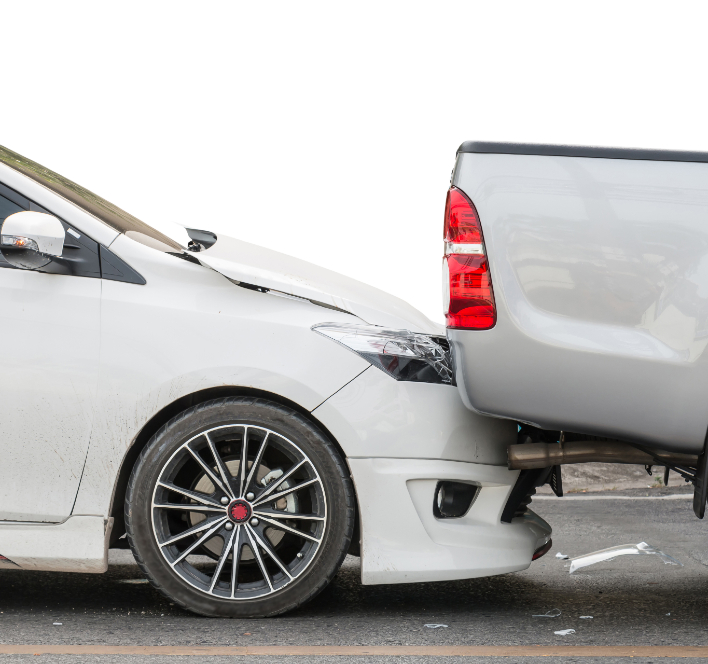Introduction
Car accidents can be traumatic experiences, often leading to physical injuries, emotional distress, and legal complexities. Navigating the legal maze that follows a car accident can be overwhelming, especially if you're unfamiliar with the process. This article aims to provide a detailed guide on the essential steps involved in handling car accident cases, whether you're a victim or an involved party needing clarity on how to proceed in such situations.

Understanding Car Accident Cases
Car accident cases generally revolve around determining liability and seeking compensation for damages incurred. They can be initiated in civil court as personal injury lawsuits when negotiations for compensation fail. Understanding key components of car accident cases can significantly aid in navigating the ensuing legal maze.
Types of Car Accident Lawsuits
Car accident litigation can involve several different types of lawsuits, depending on the circumstances of the accident. They typically fall into the following Visit this site categories:
- Negligence Claims: Most car accident cases are based on the principle of negligence, where one party's failure to exercise a reasonable standard of care leads to accidents. Intentional Torts: In rarer cases, if a driver acts deliberately to cause harm, the victim may file a lawsuit based on intentional harm. Product Liability: If a defective part causes an accident, victims may also pursue a claim against the manufacturer or distributor of the faulty part.
Immediate Steps After a Car Accident
Immediately after an accident, there are crucial steps that one must take to secure both personal safety and valid evidence for potential legal proceedings.
Ensuring Safety and Reporting
First and foremost, seeking medical attention is paramount. Call emergency services if there are injuries involved. If everyone is safe, move vehicles to the side of the road if possible. Ensure the scene is safe to prevent further accidents.
Next, contact the police to document the incident. A police report will be vital later in establishing the facts of the case. Be cooperative with officers but refrain from admitting fault at the scene.
Gathering Evidence
Collecting evidence at the scene is crucial. Take photographs of the accident scene, vehicles, and any visible injuries. Additionally, gather contact and insurance information from all involved parties and any witnesses. This information can effectively bolster your case down the line.
Engaging a Car Accident Lawyer
Once immediate concerns are addressed, it’s advisable to engage a car accident lawyer. Accident law firms often specialize in personal injury and car accident cases, and having an experienced attorney is instrumental for several reasons:
- Legal Expertise: Accident attorneys understand the complexities of the law, including statutes of limitations and applicable regulations. Negotiation Skills: An experienced lawyer can negotiate with insurance companies to reach a fair settlement on your behalf. Trial Experience: If a case goes to court, your lawyer’s courtroom experience can significantly affect the outcome.
Choosing the Right Accident Law Firm
When selecting a lawyer, look for factors such as experience with car accident cases, positive client reviews, and a track record of successful settlements. Don't be afraid to ask questions during the initial consultation to understand their methodology and fee structure.
Filing a Claim
Once you have enlisted the help of a car accident attorney, the next step is to file a claim with the insurance company. Initially, your attorney will guide you through gathering necessary documentation, including:
- Police reportsMedical recordsProof of lost wagesPhotos of the accident
It's important to provide accurate information while filing the claim. Any discrepancy can jeopardize the claim's integrity and lead to a denial of compensation.
Understanding Insurance Policies
Navigating the insurance process requires familiarity with applicable policies. Each state has its own laws governing insurance and liability, which can influence the type of claim you might pursue. Understanding terms like "liability coverage," "collision coverage," and "underinsured motorist coverage" will be crucial when discussing your case with your lawyer and insurance representatives.
Negotiating Settlements
Your attorney will handle negotiations with the insurance company on your behalf, which is where their expertise is invaluable. Insurance companies aim to minimize payouts, so having a well-prepared lawyer can help you achieve a fair settlement. Your attorney will:
- Present evidence supporting your claimEvaluate any settlement offersAdvise on whether to accept or negotiate further
When to Accept a Settlement
Accepting a settlement means you’re closing your claim and foregoing any further compensation. Consult your attorney about the adequacy of the offer based on your damages and future needs.
Preparing for Trial
In situations where a settlement cannot be reached, your case may proceed to trial. Preparing for a trial can be a lengthy process, but understanding what to expect can alleviate some anxiety.
The Trial Process
Trial processes often include several steps:
Jury Selection: If applicable, jurors are selected through a process known as voir dire. Opening Statements: Both attorney teams present their case overview. Presentation of Evidence: Witnesses will be called, and exhibits introduced, including expert testimonies. Closing Arguments: Final statements made by both attorneys summarize the case for the jury.
Post-Trial Actions
Once a verdict is reached, the losing party may choose to appeal the decision. Your attorney will advise on the feasibility and grounds for an appeal if that becomes necessary.
Conclusion
Navigating the legal maze post-car accident is undoubtedly challenging, but it is manageable with the right knowledge and resources. Engaging a competent car accident lawyer is critical for ensuring you receive the compensation you deserve. By following the steps outlined in this guide, from understanding the nuances of car accident lawsuits to preparing for what may lie ahead, you're equipping yourself with the tools necessary to maneuver through the legal landscape effectively.
Remember, car accident cases can vary significantly in complexity, so personalized legal advice tailored to your situation is invaluable.